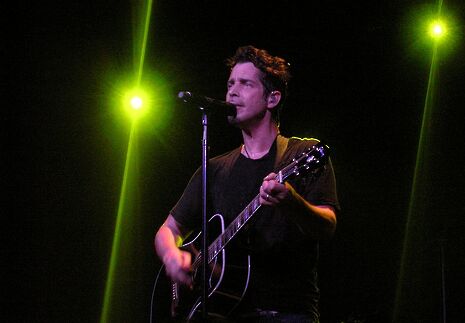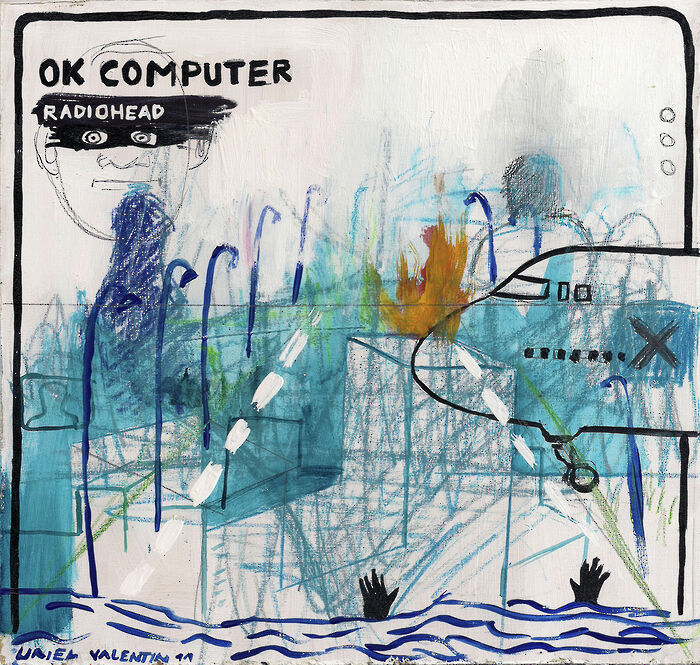Obituary: Chris Cornell
Julian Goldmann pays tribute to the Soundgarden frontman, who died at the age of 52

Last week, Chris Cornell, my favourite rock vocalist and undoubtedly the favourite of many music fans, died, hanging himself only hours after his last show. He was touring the States with Soundgarden, the band he became famous with and with which he was so massively involved in the foundation of the Seattle grunge scene in the 1990s.
He has thus joined the ranks of numerous great grunge musicians, many of them old friends of his who died much too early, be it from suicide or heavy drug-abuse. Kurt Cobain of Nirvana, Layne Staley of Alice In Chains, and Scott Weiland of Stone Temple Pilots, to name only some of them.
There is a strange irony in the lyrics which make up the chorus of the opening song of Audioslave’s second album: “I’ve been wandering sideways / I’ve stared straight into the sun / Still, I don’t know why you’re dying / Long before your time has come.” Chris Cornell himself has stated that the song is about the many people that left this world too early, people he knew, people that were younger than himself, “people who killed themselves before their time ha[d] come.”
Chris Cornell might have outlived many of his friends, but for his family and his fans, he still died years before his time had come. He was a father and husband, and an iconic figure with a unique voice; a voice ranging four octaves, a voice overwhelming with fierce brillance, bursting with deepest emotion, reaching up to the highest echelons of sound heaven and always carrying a nostalgic hint of rock’s golden era.
“A voice ranging four octaves, a voice overwhelming with fierce brillance.”
I initially got to know Chris Cornell not as Soundgarden’s frontman, but as vocalist of the ‘supergroup’ project Audioslave, a collaboration between Cornell and the instrumentalists of Rage Against The Machine. The first song I heard by him was ‘Cochise’, to this day one of the most powerful rock songs I know. Later, this sound inspired the band my friends and I were starting together at the time. For us, Audioslave proved and taught to us that the quality of rock music is seldomly measured by how long, complicated, and intricate a song is.
Audioslave were four highly distinguished musicians who came together with the intention of making great music. It was never about showing off, never about throwing the spotlight on Cornell, the incredibly gifted vocalist who then briefly wore his hair short, or on Tom Morello with his ingenious and innovative guitar-solos. Audioslave was criticised for not living up to their potential, but in my eyes those critics did not understand the project. Their songs were straight and simple, yet intelligent; right-in-the-face, yet full of feeling. That had a huge influence on how I listened to, enjoyed, and made rock music.
The first time I encountered grunge was on a summer’s night in 2010 when my older brother took me to a gig of his favourite band Pearl Jam, who were playing in Berlin. I was 14, it was my first time in a mosh pit – my brother doing his best to shield me from the other fans who were much taller than me – and it was my first real concert experience. Later, my brother’s friend lifted me up on his shoulders and I was just a few feet away from lead-singer Eddie Vedder. After the show, my brother asked how I had liked it and I replied that I was smelling of sweat, but probably mostly not my own.
I have to admit that I was not immediately hooked – it took a few more years for me to develop an actual liking for Pearl Jam’s and subsequently Soundgarden’s music. I am of a later generation and will never be a part of the long-haired, leggings-beneath-shorts-wearing grunge hype of the 90s. I will never see Chris Cornell live with Soundgarden and Audioslave, like my brother did. Despite all that, the music has never failed to touch and influence me.
Grunge has for me always been coming-of-age-music. This might change as I get older, but the feeling which these songs convey, a feeling of youthful melancholy and of being lost in the search for one’s personality and purpose in life, will not cease. It is music that celebrates being young and enjoying life, but it is always a bit closer to the dark side of it all – brokenness, drugs, depression, death.
Chris Cornell’s songs especially can become a very personal experience: listening to his voice gives you the feeling of sharing an intimate emotional moment with him. This is all the more true for some of the songs he recorded with Temple of the Dog, a band founded by him and future members of Pearl Jam after his friend and flatmate Andrew Wood of the early grunge band Mother Love Bone had died from an overdose. These songs are a tribute, written by young people mourning the sudden loss of their friend, but they are still full of power and never drift towards the melodramatic. The opening song ‘Say Hello 2 Heaven’ is the most striking example of this.
Later, the album offers a truly magical moment of grunge history, when Chris Cornell’s and Eddie Vedder’s voices mingle on ‘Hunger Strike’ in a unique joint effort. In them, I always saw two personalities who had survived all the struggles that their friends fell victim to and who would continue the legacy of grunge for decades to come. Now, there is only one left. The other one has also been taken away.
Listening to Soundgarden’s ‘Black Hole Sun’, I keep hearing this strangely fitting line; Chris telling me what can only be true of himself, now that he has left this world: “no one sings like you anymore”
 News / Uni Scout and Guide Club affirms trans inclusion 12 December 2025
News / Uni Scout and Guide Club affirms trans inclusion 12 December 2025 News / Cambridge Vet School gets lifeline year to stay accredited28 November 2025
News / Cambridge Vet School gets lifeline year to stay accredited28 November 2025 Science / Did your ex trip on King’s Parade? The science behind the ‘ick’12 December 2025
Science / Did your ex trip on King’s Parade? The science behind the ‘ick’12 December 2025 News / Cambridge study finds students learn better with notes than AI13 December 2025
News / Cambridge study finds students learn better with notes than AI13 December 2025 News / Pembroke to convert listed office building into accom9 December 2025
News / Pembroke to convert listed office building into accom9 December 2025








